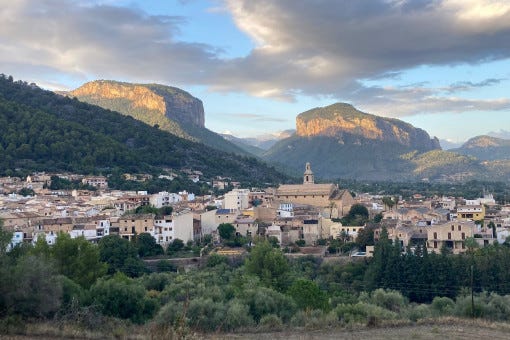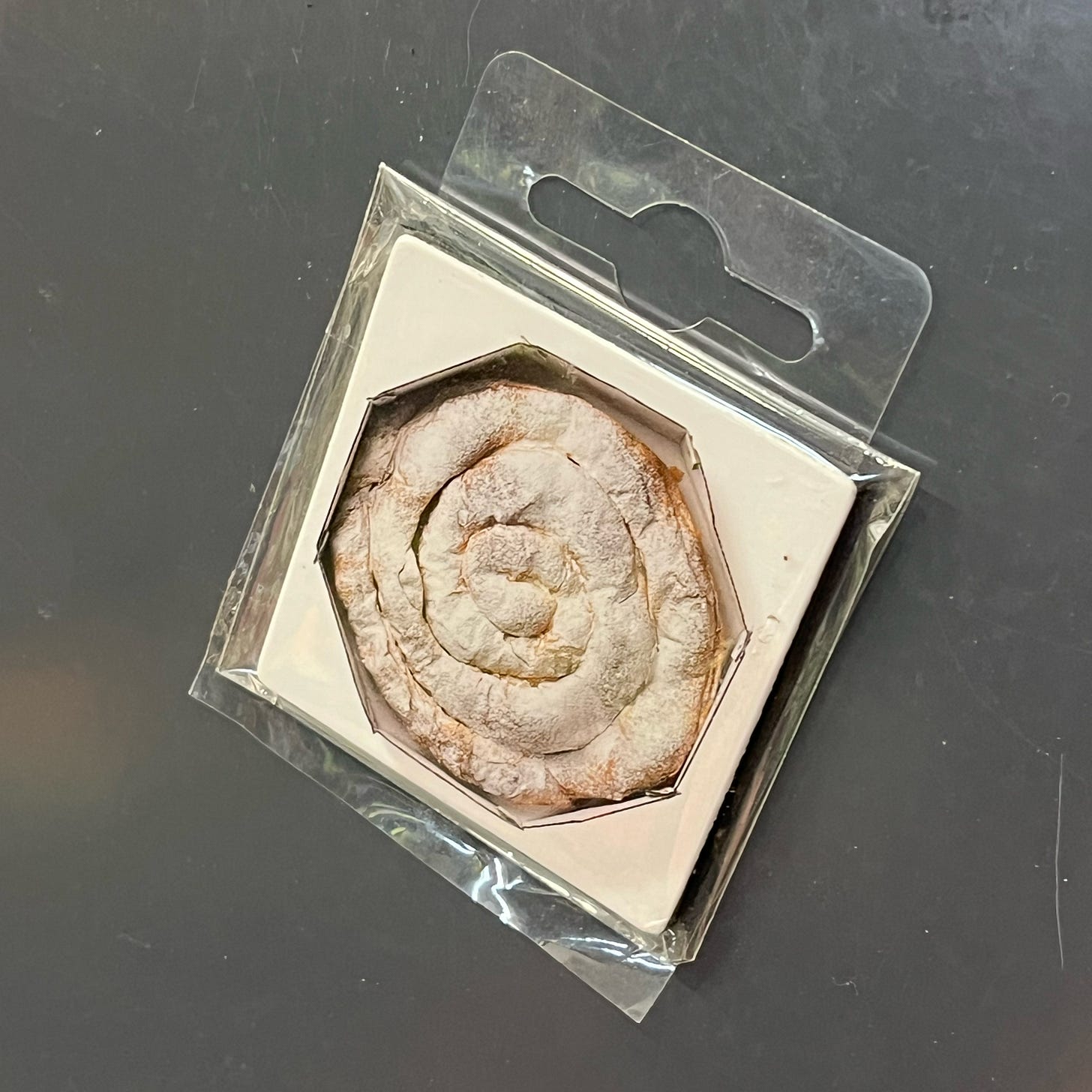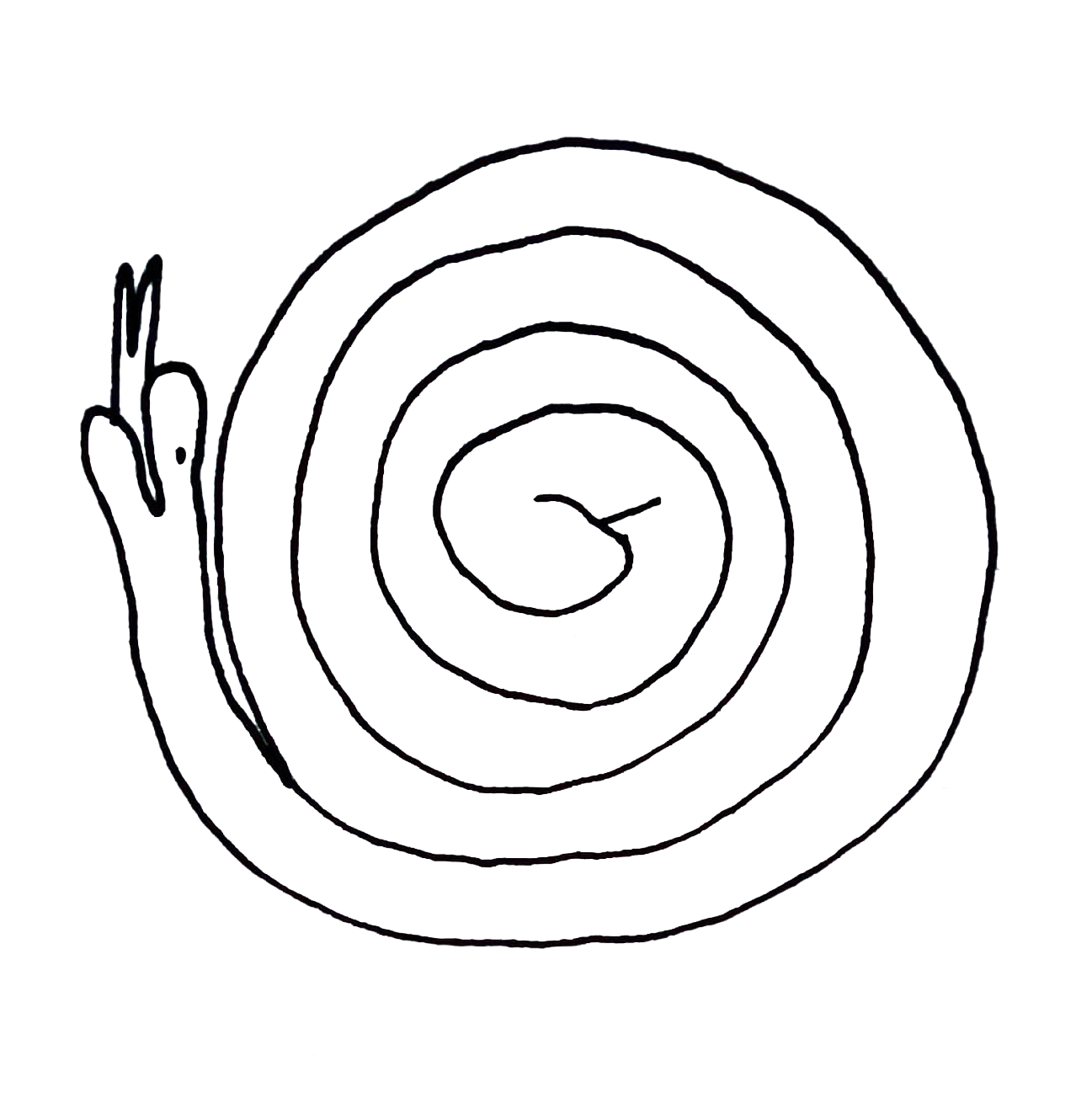Last autumn, I lived in the village of Alaró, nestled at the foot of Mallorca’s Tramuntana mountains. Facing the village are two nearly identical peaks—locals call them “the twins.” The left is said to be masculine, the right feminine, together forming a perfect equilibrium. You can feel that balance in Alaró—it’s feng shui; it feels aligned. The masculine mountain is accessible, with a castle near the top, while the feminine remains elusive—many lose their way trying to reach her.
In my search for ‘home,’ Alaró made me question, for the first time: Do we choose a place, or does a place choose us? I spent a month and a half in this small village—the most grounded I had felt in years. Yet, just as I began to consider staying, every door seemed to close. People often say this island tests you: Do you really want to be here? Are you sure? At a birthday party, a woman told me it was no coincidence I had come to Alaró. Mallorca, she said, decides who may stay and who must leave. She will test you.
One evening at Simon’s, a local bar, a man from Alaska—one of the many scattered souls from across the world who find themselves here—bluntly asked if I was Dutch or Israeli, judging only by my appearance. I told him I was Dutch, with Jewish roots. “Did you know the ensaïmada has Jewish origins?” he asked. Mallorca’s iconic spiral-shaped pastry, dusted in powdered sugar. “It means ‘thrown in pig’s fat,’” he added casually.
His words made me curious. Some say the ensaïmada was brought to Mallorca by the Moors, inspired by the Arab bulema, a snail-shaped cake. Others trace it back to the island’s Jewish roots.
Tomeu Arbona, a renowned pastry chef and culinary anthropologist, has researched the ensaïmada’s origins, linking it to the round, braided challah bread of Shabbat. The Mallorcan version was once made with olive oil, in keeping with Jewish dietary laws. With the 1492 Inquisition, Jews were expelled or forced to convert. To prove their Christian faith, Mallorcan conversos replaced olive oil with lard. Since families baked at communal village ovens, switching ingredients became a survival tactic—an attempt to blend in. By the 17th century, the pastry had earned its name: ensaimada de Mallorca—thrown in pig’s fat.
The Xuetas, descendants of converted Jews, carried the weight of this history. Their surnames—fifteen in total—were heavily stigmatized, their community forced into marriages within their own families. Some continued Jewish traditions in secret, while publicly adopting non-kosher foods to avoid persecution. The very name Xueta may stem from xueu (Jew in Mallorquín) or xulla (pig fat), a reference to forced public displays of Christian conformity.
Arbona’s research suggests that the spiral shape of the ensaïmada was more than aesthetic—it carried deep symbolic meaning, much like the round challah of Rosh Hashanah. In Jewish tradition, the circle represents continuity, renewal, and the cycle of life, death, and rebirth. Time is not linear, but a spiral—like the ouroboros, the serpent swallowing its own tail.
I’ve long been drawn to the ouroboros. In 2025, we enter the year of the snake in the Chinese lunar calendar. The snake must shed its skin to transform, an ancient symbol of the feminine, of regeneration and rebirth. It protects us as we evolve, guarding the threshold between old and new. In Jewish thought, the spiral asks us to reflect—where we come from, where we are, and who we want to become.
Perhaps that’s the quiet lesson the ensaïmada still carries.
Sources:
José Carlos Camel, ¿La ensaimada mallorquina, un dulce de origen judío?, El País, 2019.
Paula Mourenza, Formentor: Spiral Tradition, Culinary Backstreets, 2023.
Ensaimada: a journey through the culinary heritage of the Balearic Islands, The Last Bellota, 2024.
Stephen Burgen, ‘No one talked about it’: persecution of Mallorca’s Jews finally acknowledged, The Guardian, 2023.
Ari Blaff, ‘Xuetas’ Return to Their Roots in Majorca, Tablet Magazine, 2023.












